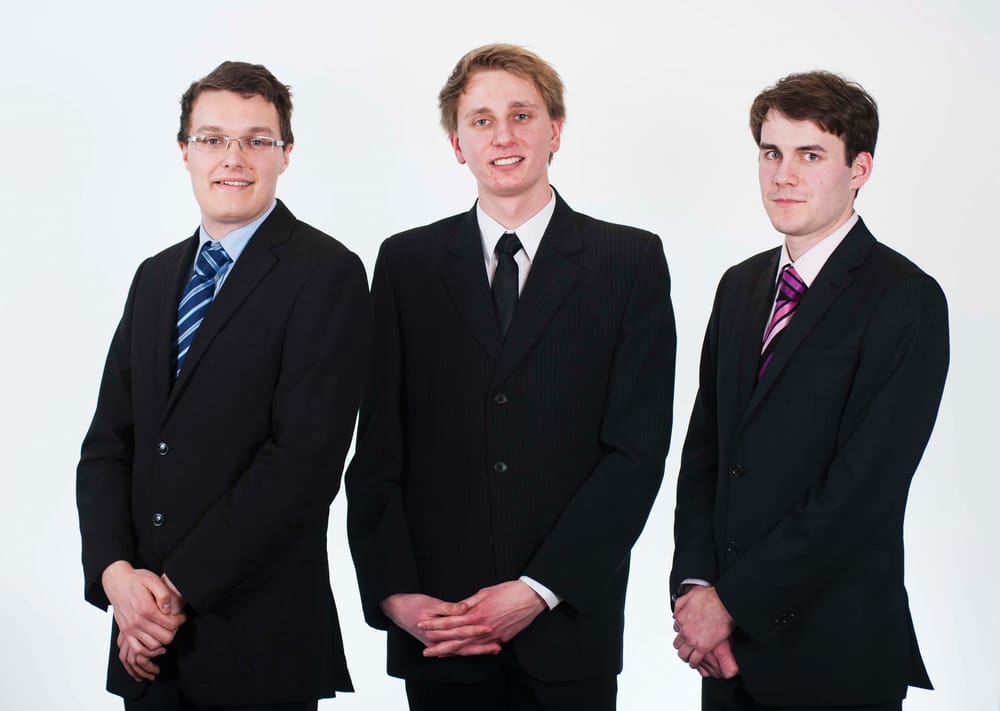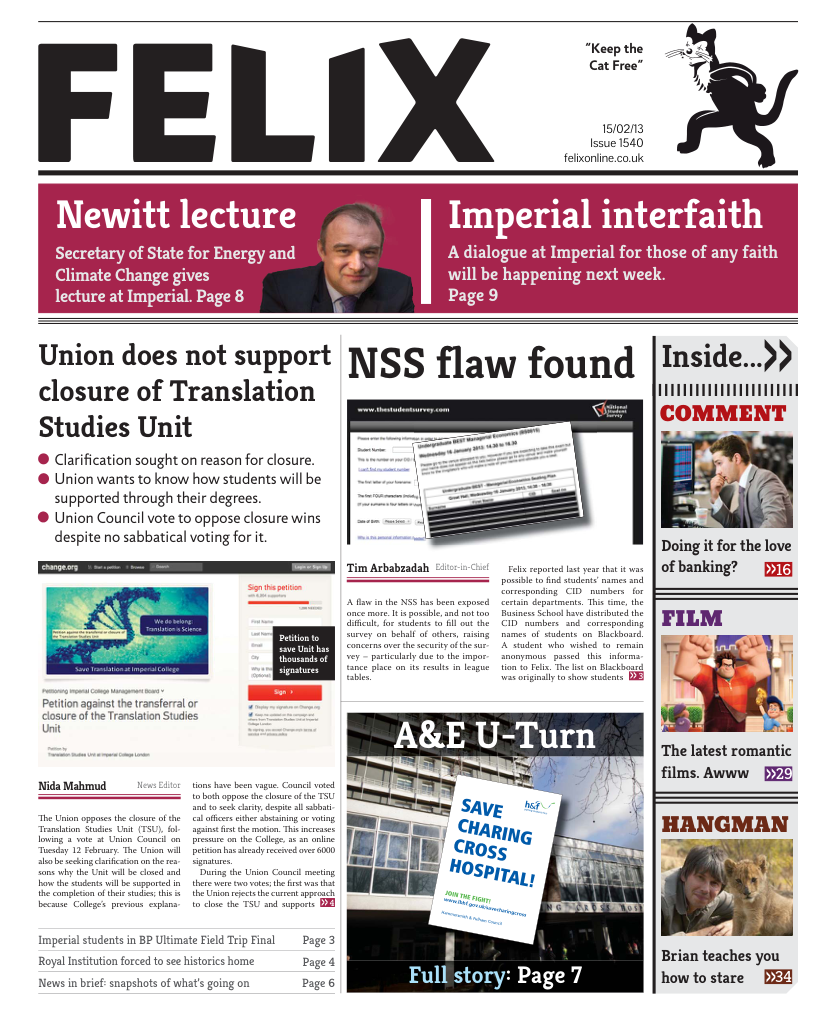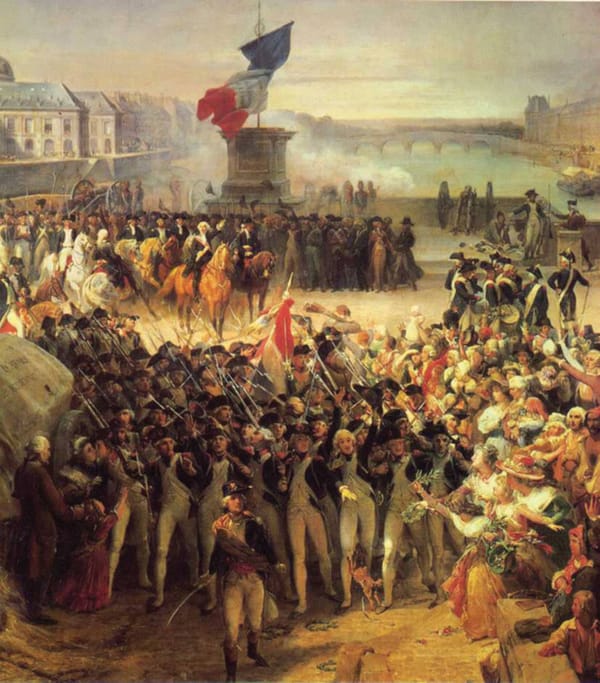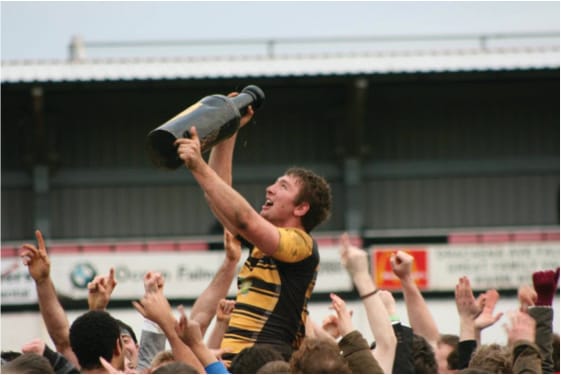Students in final of BP Ultimate Field Trip
Imperial students storm their way through

Three second-year Civil Engineering students make up the only team from Imperial College to have passed onto the Finals of the 2013 BP Ultimate Field Trip challenge. Edward Courtnell, Stephen Rose and Dominik Sznajder are now facing teams from Oxford, Strathclyde and Glasgow Universities for the chance to win a 2-week trip and a cash prize of £1000. The group of friends went from regular term work of solving problem sheets and revising for progress tests, to climbing up the ladder and impressing BP executives at last week’s Semi-Final.
The BP Ultimate Field Trip is a flagship competition not just in the UK but all over the world. It gives students the opportunity to have a go at tackling real-life engineering challenges and to come up with innovative solutions, which they then need to research and sell to a pwas to come up with a single technical innovation that could reduce the cost of PKT (Passenger Kilometer Travelled) in the UK by 2030. In other words, reduce the cost of public transportation. An interview of the three teammates has yielded valuable insight into just what it takes to wow the judges of the BP competition.
The first stage involved an online questionnaire where questions were specifically designed not to have simple solutions available online. From then on, each step of the competition required more research and problem-solving to get the candidates into the mindset of what being an engineer actually entails. After successfully passing the first round, the team went on to produce a powerpoint presentation, and then a professional technical poster outlining their idea. Their main technical innovation is Regenerative Breaking with Onboard Storage. This technology would allow train operators to save money by harnessing the energy that is lost through braking when the trains stops. That energy would be stored onboard while the train is stationary, and then fed it back into the motors when the train leaves, which would allow for faster acceleration. The team has calculated that this technology could save train operators 105 million pounds a year. This would be achieved by installing lithium-ion capacitors on existing trains, which would store the energy.
However having a good idea isn’t the whole story. The team had to be able to convince the judges of just how effective their technological innovation was. The structure of the competition intends to allow them to work on their presentation skills and their ability to perform under pressure, but what really separated them from the herd was the sheer amount of background research they produced. This allowed them to shine when it came to Q&A after last Tuesday’s Semi-Final 10 minute presentation; and could well be the main reason they are the only team that went through from Imperial this year.
All three members agree that this journey has showed them the importance of teamwork and perseverance. If you had asked them back in October, none of them would have imagined getting so far in the competition. All three describe the experience as “challenging but rewarding”. They all recommend the competition to Imperial students. Despite the amount of work that is necessary, the journey is enriching, and you get to visit BP’s London offices.
Emma Judge, Head of Graduate Resourcing at BP, said: “Submissions for this year’s UFT have been better than ever and it’s great to see Imperial College London making it though to the Grand Final. We wish Edward Courtnell, Stephen Rose and Dominik Sznajder the very best of luck and we’re looking forward to seeing them again on the 8th March in London. It’s going to be a great night, and they have the extra bonus this year of meeting the science man of the moment, Dara O Briain!”.
The next step is to produce and edit a video and a pitch, which they will present to BP officials, judges and a press-corps on March 8th, 2013. They will be working with a professional editing company and BP experts to make sure everything is ready for the Final, which will take place inthe Royal Institute of Great Britain.







